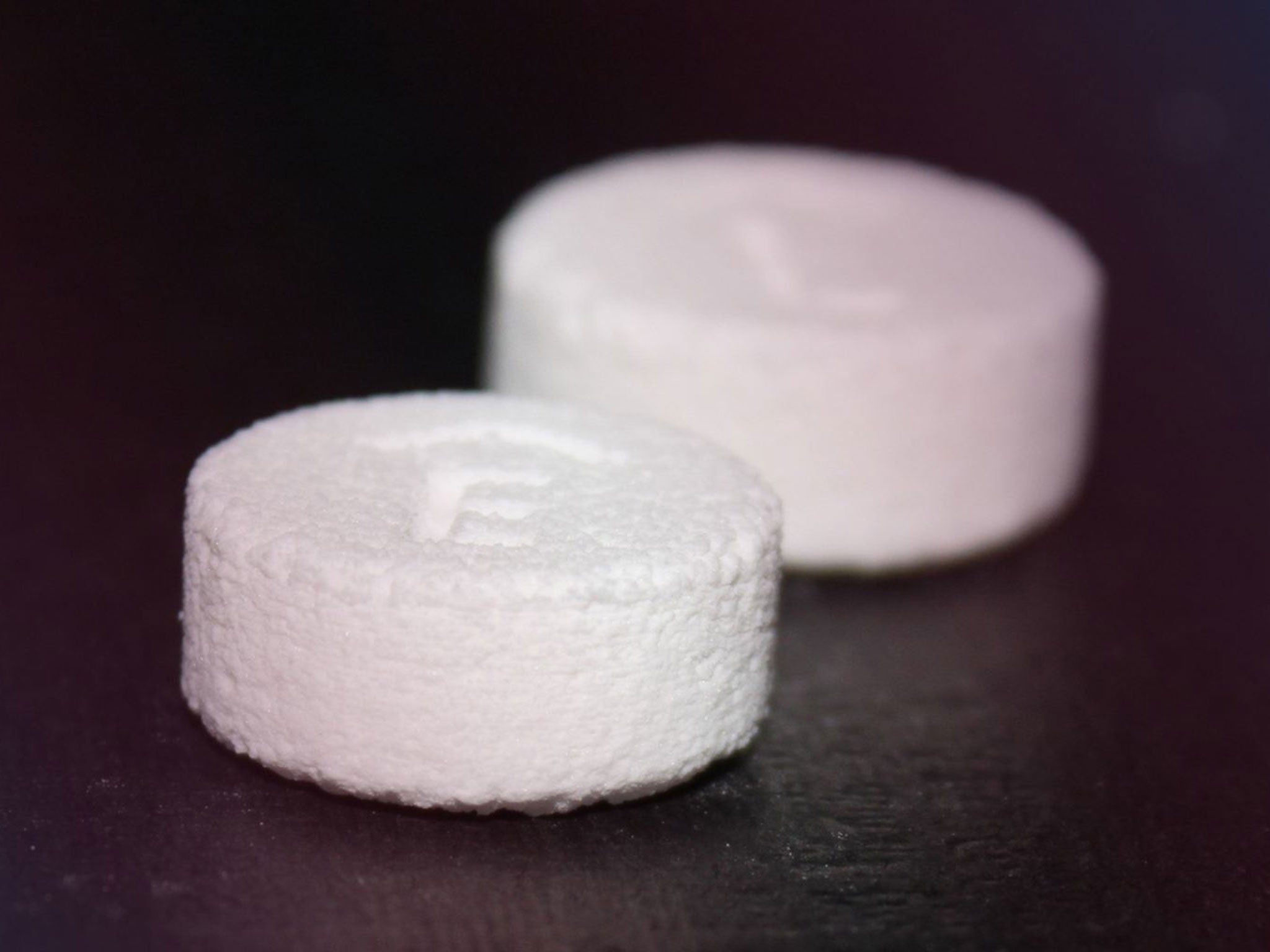First 3D Printed pill approved for prescription drug use in the US
The FDA’s approval will see a new epilepsy prescription drug produced by 3D printers

Your support helps us to tell the story
From reproductive rights to climate change to Big Tech, The Independent is on the ground when the story is developing. Whether it's investigating the financials of Elon Musk's pro-Trump PAC or producing our latest documentary, 'The A Word', which shines a light on the American women fighting for reproductive rights, we know how important it is to parse out the facts from the messaging.
At such a critical moment in US history, we need reporters on the ground. Your donation allows us to keep sending journalists to speak to both sides of the story.
The Independent is trusted by Americans across the entire political spectrum. And unlike many other quality news outlets, we choose not to lock Americans out of our reporting and analysis with paywalls. We believe quality journalism should be available to everyone, paid for by those who can afford it.
Your support makes all the difference.The first 3D printed pill has been approved by US authorities to produce a new drug to treat epileptic seizures.
The Food and Drug Administration (FDA) approved the Spritram drug, produced by Aprecia Pharmaceuticals, making it the first prescription drug to be manufactured by 3D printing.
The pill is printed with Aprecia’s “ZipDose” technology, which makes the pill porous and able to quickly disintegrate in a "sip" of liquid.
Printing the pill also means the company can package drugs more compactly, with the ability to have up to 1000 milligrams in one easily dissolvable pill, according to the BBC.
Don Wetherhold, Chief Executive of Aprecia, said in a statement: “By combining 3D printing technology with a highly-prescribed epilepsy treatment, Spritam is designed to fill a need for patients who struggle with their current medication experience.”
“This is the first in a line of central nervous system products Aprecia plans to introduce as part of our commitment to transform the way patients experience taking medication,” he said.
Join our commenting forum
Join thought-provoking conversations, follow other Independent readers and see their replies
Comments